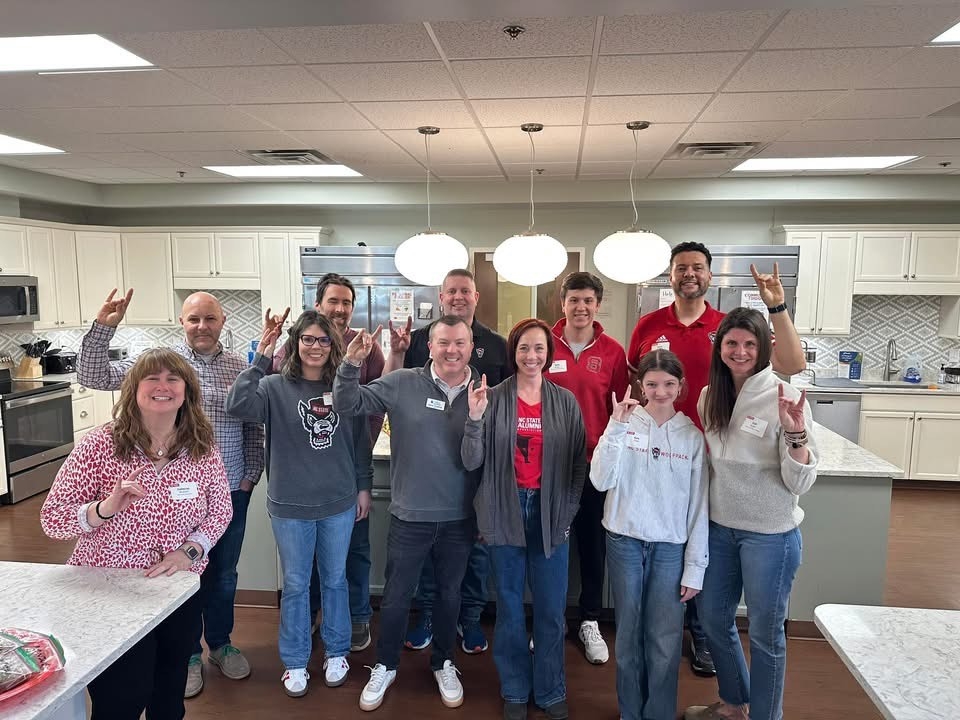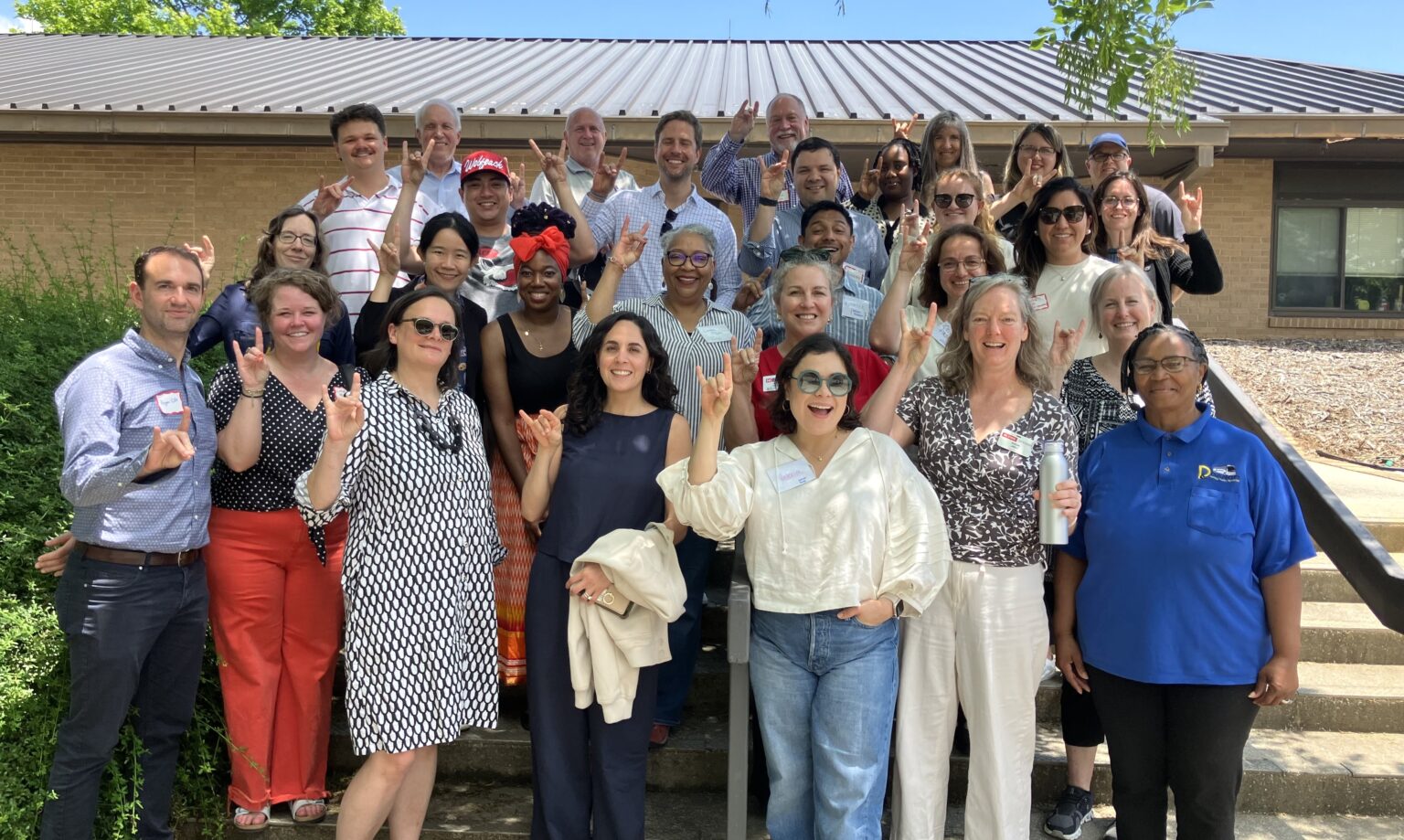Alternative Spring Break Brings Understanding through Cultural Immersion
When he starts his professional career this summer, Phil Liuzzo – a graduating senior in NC State’s Poole College of Management – will bring more than a solid business education to his new position. He’s also bringing team leadership skills and cultural awareness that he has gained through four Alternative Spring Break (ASB) experiences completed during his undergraduate years.
Liuzzo’s interest in traveling – “but not as a tourist” – drew him to the ASB experiences. “I wanted to see things from a different perspective,” he said. He found just that kind of experience – and more – through the ASB program coordinated by NC State University’s Center for Student Leadership, Ethics, and Public Service (CSLEPS).
During 2009 and 2010, Liuzzo went to Belize where he worked on ASB projects that helped organic cacao farmers. In 2009, the ASB team built a drying rack for the community, providing the farmers a way to dry beans indoors when it rained. The rack also eliminated the need to carry their beans over a couple of miles for drying elsewhere.
On the second trip, Liuzzo was a part of a team that built fermentation boxes as well as a smaller drying rack for a neighboring community.
Between his sophomore and junior years, Liuzzo decided to apply for a team leader position and completed the team leader course offered by CSLEPS. “After going on two trips, I thought I was ready and had matured enough to lead a group,” Liuzzo said. “I was also able to grow exponentially through the year-long team leader prep course that all ASB leaders take.”
He put that training to work during his 2011 spring break, when he lead the NC State group that worked with the Full Center for Housing in El Salvador, helping to build a structure for four families.
“I enjoyed leading the trip so I was a team leader again this year,” he said.
This year’s experience – developed by CSLEPS and NC State’s Women’s Center – focused on gender issues in Guatemala. The student participants explored such areas as traditional understandings of masculinity and femininity, the roles associated with each in contemporary society, how they influence the daily lives of Guatemalan women and men, and how these same themes manifest themselves in the USA. A key focus of the experience was to learn about the historical, cultural, and political dynamics of gender issues and to bring that knowledge back to share with others and help advocate change.
Liuzzo said he had read a little about the treatment of women in Guatemala, but better understood the situation after becoming immersed in the culture during the trip.
The team had appointments with different groups of women to learn about their past projects, such as building a school, a hospital, and starting a clothing cooperative. But mostly, the team members sat down, talked, and listened to what the women needed to say.
Liuzzo said he learned that women are not treated well in Guatemala and are often regarded as second-class citizens, treated as property of their husbands. In contrast to the U.S., non-consensual sex – including between husband and wife – in Guatemala is not considered rape, a plight more common in rural areas. “Rape, fear, and intimidation are used as tools by men to control women,” Liuzzo said.
“One of the things I understood – and am still coming to understand – is that to stop this violence, the women in Guatemala need to be more educated about natural and lawful rights,” Liuzzo said. “I also believe that it is important to spread the word about this so that people are aware of what is going on.”
“Thankfully, the social status of women is changing,” he added. “Women are gaining more and more respect as well as rights.”
For example, he said that femicide was finally considered a crime in 2008, and more recently, the police and prosecutors started siding with women on domestic violence. Now there is a 99 percent conviction rate for husbands who abuse their wives. Once convicted, abusive husbands typically serve six to 12 years in prison.
“One of the biggest skills I developed while in Guatemala was learning how to deal with people from different backgrounds in stressful situations,” Liuzzo said. “People react differently when they are stressed. Some are quiet, some get angry, some begin to panic, and some just totally disconnect.”
As the ASB trip progressed, Liuzzo said he developed an understanding of people’s reactions – who would react in which way – and tried to mitigate any potential stress on the team by providing as much information as possible prior to the team’s interaction with interviewees. “As an ASB team leader, I developed and am still developing skills necessary to effectively lead a team and inspire others,” Liuzzo said. His experience is applicable to his career path, as he aspires to have a management role in the future.
Liuzzo is graduating in May 2012 with a major in business administration, with concentrations in finance and supply chain management and a minor in environmental science. He has accepted a position with Lowe’s in Mooresville, N.C., in the company’s two-year Finance and Accounting Rotational Program. He is from Huntersville, N.C., where his parents Ben and Teri Liuzzo currently reside.
Photo
Phil Liuzzo in Poole College’s Student Commons in Nelson Hall (right) and in Guatemala with his ASB team.
Related stories
Alternative Spring Break Helps Student Define His Future Goals
Alternative Spring Break: An Opportunity to Build Homes and Communications
Lauren Rakes Applies Healthcare Experience to Service Project in Guatemala


